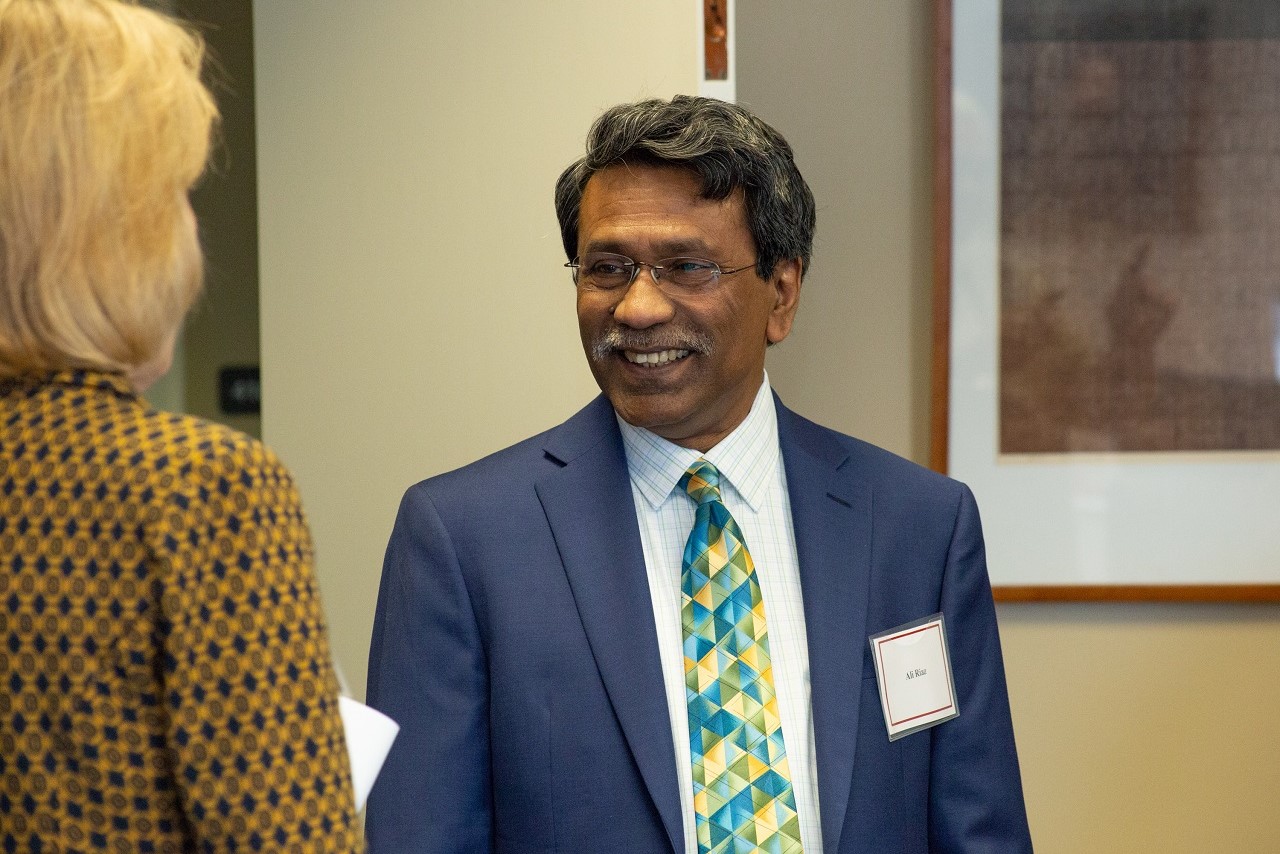Distinguished Professor Ali Riaz was interviewed frequently by international media in the wake of an uprising in Bangladesh which deposed Prime Minister Sheikh Hasina.
Hasina resigned and fled the country on August 5, after weeks of protests and unprecedented violence perpetrated by law enforcement agencies and activists between July 16 and August 5. Professor Muhammad Yunus, the country’s only Peace Nobel laureate, was appointed head of an interim cabinet of 17 people on August 8.
Riaz was quoted in a report of the German international broadcaster DW on July 29.
“The government has attempted to foster a facade of democracy through some so-called elections,” Riaz said. “That era has ended. This government, which lacked moral justification in the past, is now left with no option but to resort to force.”
He published a Bengali commentary in the Prothom Alo on July 29, highlighting the role of the youth in the ongoing movement and another in the Bengali daily Samakal. He was quoted by the VOA on July 31 and by the DW. He was quoted by the wire service AFP on August 3.
“The regime’s foundation has been shaken, the aura of invincibility has disappeared,” he said. “The question is whether Hasina is ready to look for an exit or fight to the last.”
He was interviewed by Scroll.india on August 4. He explained that the roots of the upsurge lie in the Awami League’s authoritarian rule, with several elections seen as fixed, and that this presents a major challenge to Prime Minister Shaikh Hasina’s hold on power.
Riaz published a commentary in Bengali in Prothom Alo about the possible trajectory of the movement. He was interviewed by the BBC News Hour on August 4, where he insisted that the Rubicon has been crossed, and the Hasina regime is on the verge of collapse. In an interview with the BBC Television Newsday on August 4, Riaz said that the government lacks legitimacy, and the protests are on a path to become a mass upsurge.
On August 5, as Sheikh Hasina resigned and fled the country, Riaz was interviewed by various media as the story unfolded to provide context and possible trajectory. He was quoted in a BBC report about why India came to aid of the deposed regime. He spoke to NPR, Aljazeera English, and the BBC. In DW he discussed the challenges of establishing a representative interim government.
As Yunus was chosen to lead the interim government, Riaz told the Wall Steet Journal on August 6 that Yunus faces many challenges, in particular meeting the aspirations of a young people’s political movement that formed largely independently of the major political parties. He added that Yunus will have to repair the damage done to many of Bangladesh’s administrative institutions during Hasina’s rule. He was interviewed by the BFM 89.9, Malaysian national radio, on August 7. He was quoted by the Financial Times on the how India’s policy of supporting a autocratic regime was myopic.
On August 8, Riaz was interviewed by the BBC, CNN International, and the Canadian Broadcasting Corporation (CBC) among a host of international media to explore the situation in Bangladesh and the pathway of the newly installed interim government. On August 9, he was quoted in the Aljazeera English online report where he noted that the interim government “possesses both strengths and weaknesses, as is typical with any group.” He said he hoped more people will be brought into the government as it begins its work and assesses its needs. He was also interviewed by the BBC Business Matters on the economic aspects of the changes.

